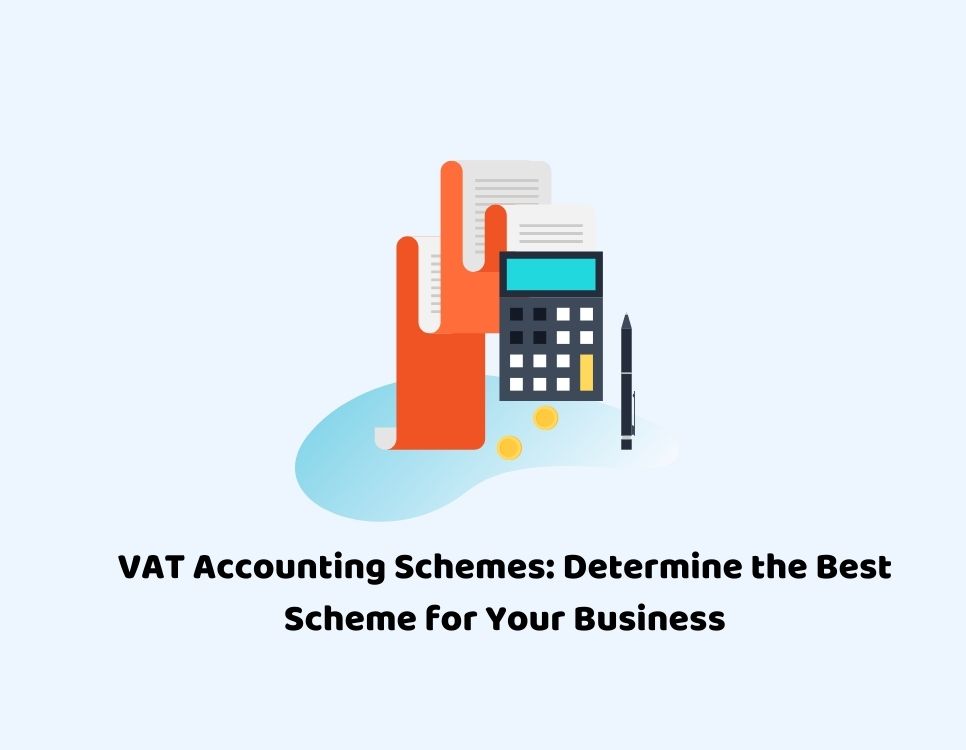
13/01/2021Accountants , Accounting Issues , Making Tax Digital , VAT
If you are running a business, then you have to keep track of the taxes that you pay to HMRC. VAT is an indirect tax that is collected by HMRC because it is charged by the businesses for the HMRC. There are different VAT schemes to report VAT with HMRC. In the UK, VAT is the third-largest source of income for the government after Income tax and National Insurance.
The Value Added Tax VAT is the most widely paid tax to HMRC on the selling of goods and services. Businesses collect this tax on the items they sell and it applies to every sale.
Do I have to Register for VAT?
Yes, you have to register for VAT. But your earnings have to pass a certain threshold. The threshold does not remain the same; the rate may change every year. If you are passing the threshold, you have to register in 30 days. You can do it online.
Can I Reclaim VAT?
If you are a business owner and selling goods or services to other customers or businesses, you can reclaim VAT. You can also reclaim the VAT that you pay on your business-related expenses. But you have to register for VAT first.
Is there any Benefit for VAT Registration?
You must be thinking about what you get in return for paying VAT. You can simply claim it back. Utility businesses have to pay VAT on the goods they purchase but they can claim them back at the time of filing their returns.
If your business is VAT registered, it improves its credibility. It kind of makes you look more authentic. Your business will look more professional, even if your turnover is lower.
What is the VAT Scheme?
A vat scheme is a system to tell HMRC about VAT. Once you register for VAT, it doesn’t end there. Charging VAT from customers bounds you to tell HMRC about it. You need a proper mechanism for this. It also includes how much VAT you are charging. HMRC is providing this mechanism in the form of a VAT scheme.
How Many VAT Schemes are there?
HMRC is providing three different VAT accounting methods which are called VAT accounting schemes.
The days of manual methods are over and people now prefer to use automatic accounting software. The software can acquire data automatically which then you can use to complete a quarterly VAT return.
HMRC is pretty flexible in providing different methods. Depending on your business nature and turnover you can choose the right accounting method.
To tell the HMRC about VAT you have to know:
- How much VAT you have deducted or charged
- How much VAT you have paid
Annual Accounting VAT Scheme
This is the same as the standard VAT accounting method. You don’t have to file a quarterly return if you are going with this scheme. You have to keep up with an annual deadline for payment and reporting. Most people keep it the same with their tax filing date. It is much simpler. If your business has a turnover of more than £1.35 million, you cannot go with this scheme.
Flat Rate Scheme
A flat rate scheme is a VAT accounting scheme for small businesses. if you own an SME. You must know your total turnover. You have to pay VAT on the percentage of your turnover. Flat VAT accounting rates depend on what kind of business you do. You have to look for flat rates for different industries.
Some key features of this scheme are:
- If you own a small business
- You have to charge VAT on your invoices. But this saves you from the trouble of accounting for VAT on every sale and purchase
- Business with a turnover of up to £150,000 can avail of this scheme
Cash accounting scheme
You account for VAT on the same day you receive your payment with this scheme. You don’t have to account for it when you send the invoice. This scheme is beneficial for you if you face delays in receiving payments from your vendors. In this scheme, you don’t have to pay VAT until you receive your due payments.
Is the cash accounting scheme well suited for you?
You don’t have to go with this scheme if you buy a lot of things on credit. Because you cannot reclaim VAT until you receive your payments. If your business’s annual turnover is above £1.35 million, you cannot go with this scheme.

